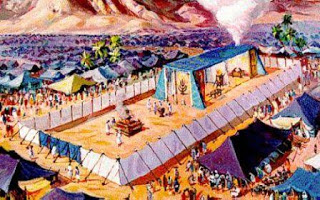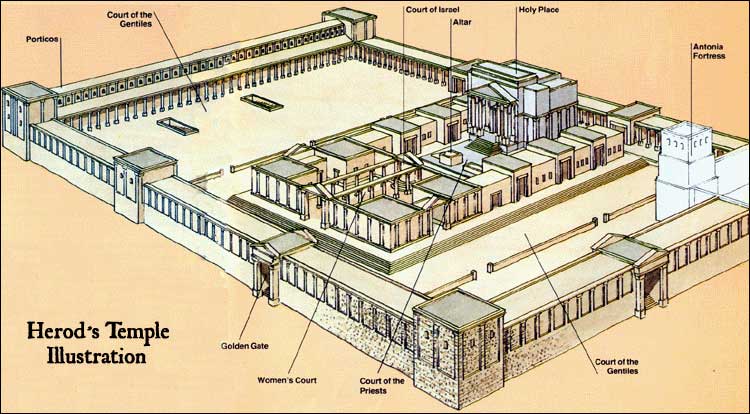
 |
Freethought & Rationalism ArchiveThe archives are read only. |
|
|
#11 |
|
Veteran Member
Join Date: Jun 2010
Location: seattle, wa
Posts: 9,337
|
This is a discussion of Biblical Criticism and History and the Jewish mourning over the loss of their tradition is central to their religion. It may be a waste of time to you consider why Jews do what they do but for those of us who care about this stuff it is one of the unexplained mysteries of the religion. The Jews should have either (a) rebuilt their temple again or (b) decided that God didn't want them to have a permanent structure (and blame Herod for the abomination). But the idea that (c) God loved their temple and they lost it because they were bad can't work, shouldn't work, is completely illogical. It goes against the very rules of their religion. Yes the Israelite religion is logical. Islam is logical. It's just Christianity which has developed into this tradition where 'anything goes' because of the ever moving, ever changing spirit.
In Judaism and Islam there are a list of 'rules' and 'the logic of God' is known in the proper interpretation of that text. The idea that the Pentateuch laid out a law which - in the case of the temple - could be breached is only part of the consistent break with logic ever since the destruction. It needs to be explained. |
|
|
|
|
#12 |
|
Veteran Member
Join Date: Jun 2010
Location: seattle, wa
Posts: 9,337
|
Let me put it another way. Since you don't care about Biblical exegesis, I will make it a 'picture book.' If God told Moses he wants this:
 How can you get from a flimsy movable 'tent' to a permanent 'building':  Just look at the Greek columns and the obvious Hellenistic symbolism of this 'building.' It is hard enough to understand how Jews could accept the change from flimsy to permanent house of God - but a specifically Greek house of God too? I can't for the life of me see how 'conservative' Jews who filled the ranks of revolutionaries could have been in love with this 'acropolis' temple. |
|
|
|
|
#13 |
|
Veteran Member
Join Date: Jun 2010
Location: seattle, wa
Posts: 9,337
|
The Samaritan 'temple' on Gerizim was not like this acropolis. It was a tabernacle and most importantly whatever buildings there were had no roofs (I think Jesus's statement about the 'cave' like quality of the Jewish holy house is significant here = it had a roof) - in other words, it was in keeping with the logic and rules given by God to Moses. http://classical.rabbinics.org/05%20...n%20Temple.pdf Nor should we imagine the 'temple' that the Jews had before Herod. Herod's temple was a complete break from tradition and I find it hard to reconcile that in 80 years Herod's Pharisaic enemies suddenly fell in love with his temple.
|
|
|
|
|
#14 |
|
Veteran Member
Join Date: Feb 2012
Location: Auburn ca
Posts: 4,269
|
First, this was one of the wonders of the world. In its day it was a remarkable sight in any time.
Your missing the wide diversity of Hellenistic Judaism in the first century. This was gods house, plain and simple. Judaism more or less collapsed when the temple fell, and was reborn under the Pharasiac traditions. |
|
|
|
|
#15 |
|
Veteran Member
Join Date: Jun 2010
Location: seattle, wa
Posts: 9,337
|
Thanks for the summary but it is still illogical. The sacrifices could have continued. Why didn't they?
|
|
|
|
|
#16 | ||
|
Talk Freethought Staff
Join Date: Apr 2011
Location: Deep South, USA
Posts: 7,568
|
Quote:
Quote:
|
||
|
|
|
|
#17 | |
|
Veteran Member
Join Date: Jun 2010
Location: seattle, wa
Posts: 9,337
|
Fuck Chronicles. Here is Magen's summary:
Quote:
|
|
|
|
|
|
#18 |
|
Veteran Member
Join Date: Jun 2010
Location: seattle, wa
Posts: 9,337
|
Does anyone else see any evidence which would contradict the idea that the Samaritans resisted the idea of 'buildings' (= at least no roofs) http://books.google.com/books?id=6Ns...nce%22&f=false
|
|
|
|
|
#19 | ||
|
Talk Freethought Staff
Join Date: Apr 2011
Location: Deep South, USA
Posts: 7,568
|
Quote:
It appears you want to steer the argument to a conclusion which you have already determined. It would save a lot of time if you just go ahead and tell us what it is. |
||
|
|
|
|
#20 |
|
Veteran Member
Join Date: Jun 2010
Location: seattle, wa
Posts: 9,337
|
Let us consider the meaning of the Hebrew word spelt HE-YOD-KAF-LAMED (hêkal, Masoretic hekhal), often translated "Temple" but which means "pattern" or better "lay-out". It refers to the set of enclosures making up the Sanctuary, made up of curtains hanging from rods resting on poles, the whole being collapsible and therefore portable. See the elaborate description in the second half of Exodus.
The word 'hekal' appears in the Arabic Book of Joshua (= Samaritan version), as in Juynboll's edition, translated from Aramaic with the Aramaic being an abbreviated translation from a lost Hebrew original. The Arabic original of this passage has haykal, an absolutely unambiguous word in Arabic that does NOT mean any kind of building, but "skeleton", "plan", "lay-out". This is what is meant by the Hebrew TAV-BET-NUN-YOD-TAV tabnit in Exodus, Masoretic tavnit, meaning a detailed lay-out or set of drawings for such a lay-out, i.e. blueprints. The Jewish usage of "hekhal" to mean a building is secondary. The Jerusalem temple's courts were a stone reproduction of the pattern of curtains, so Jewish usage shifted. No Samaritan text uses the secondary meaning. Of course the lay-out set up is elaborate and detailed, because the prescriptions in Exodus say so. As such it remains that what is being described is a set of courts marked off by curtains hanging from rods. Only the Tent of Meeting had a roof, but it was still a tent and the roof was cloth. In the Jerusalem temple it was a stone cube with a solid roof. |
|
|
| Thread Tools | Search this Thread |
|